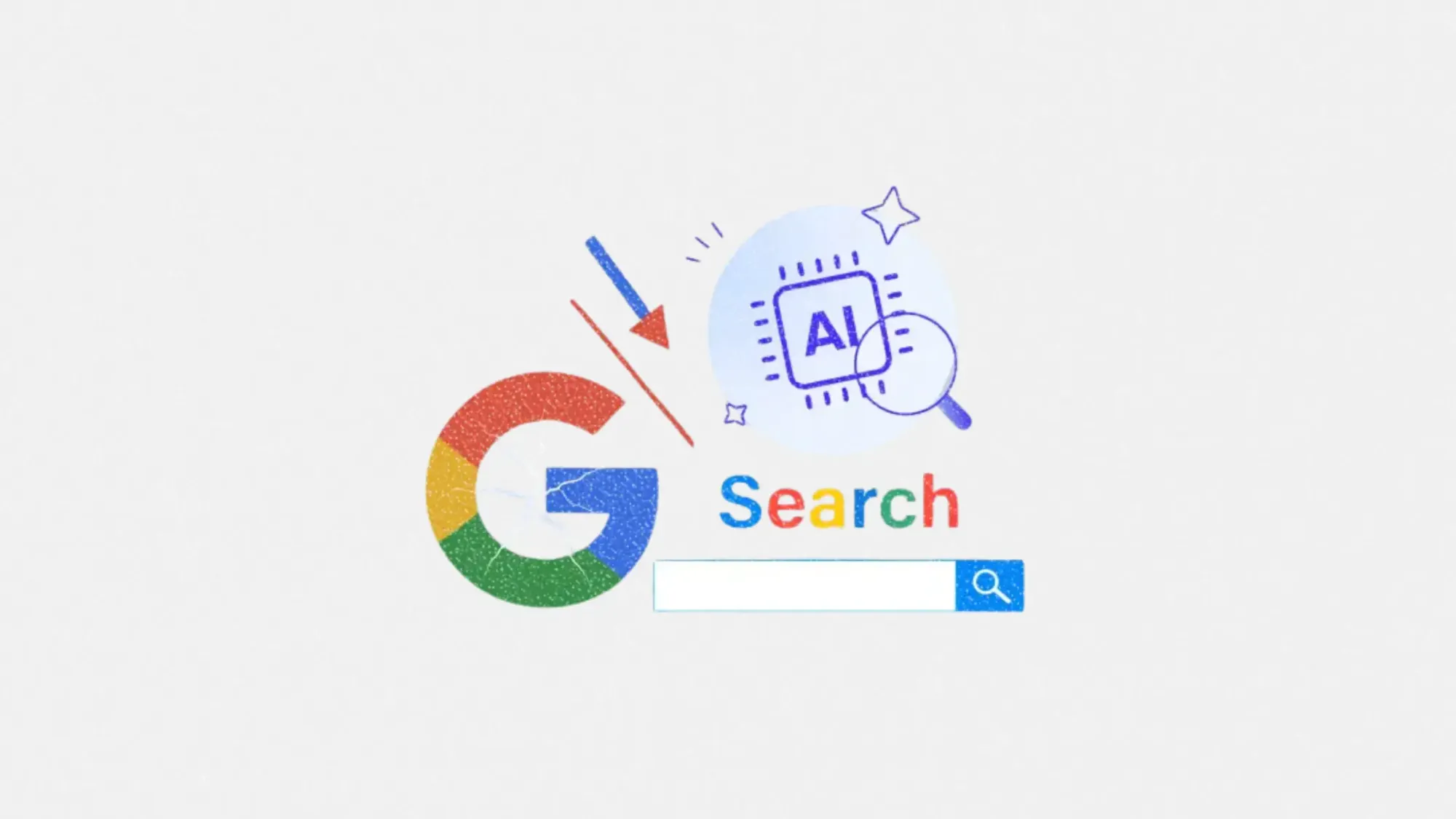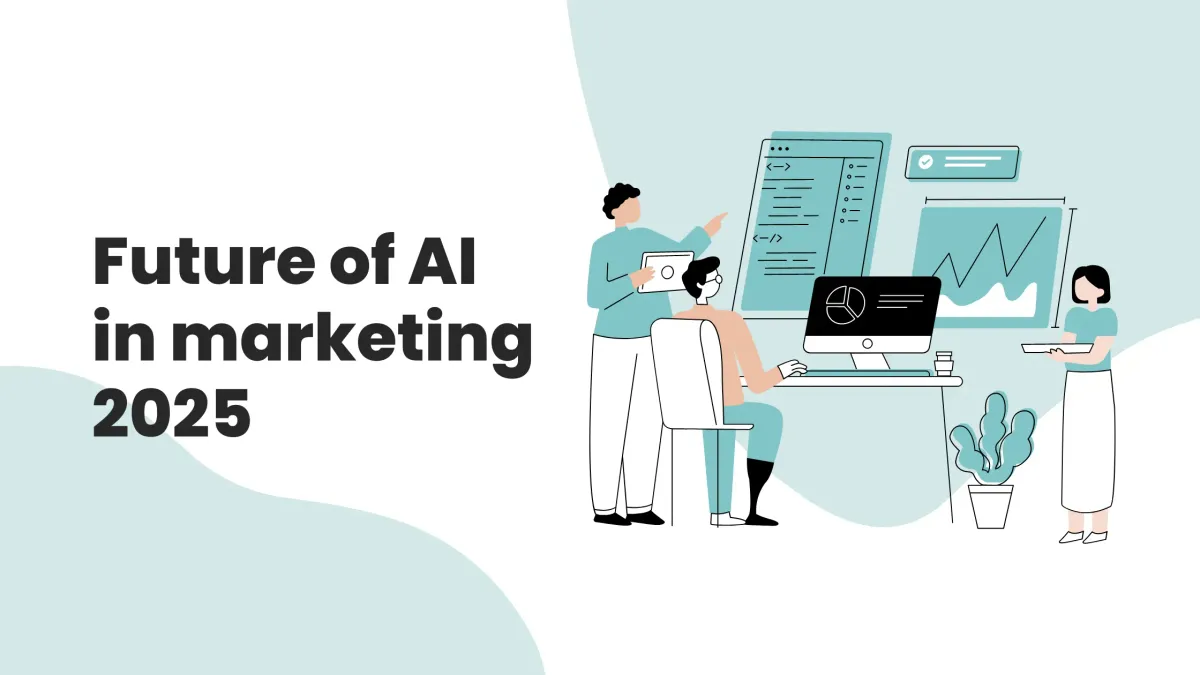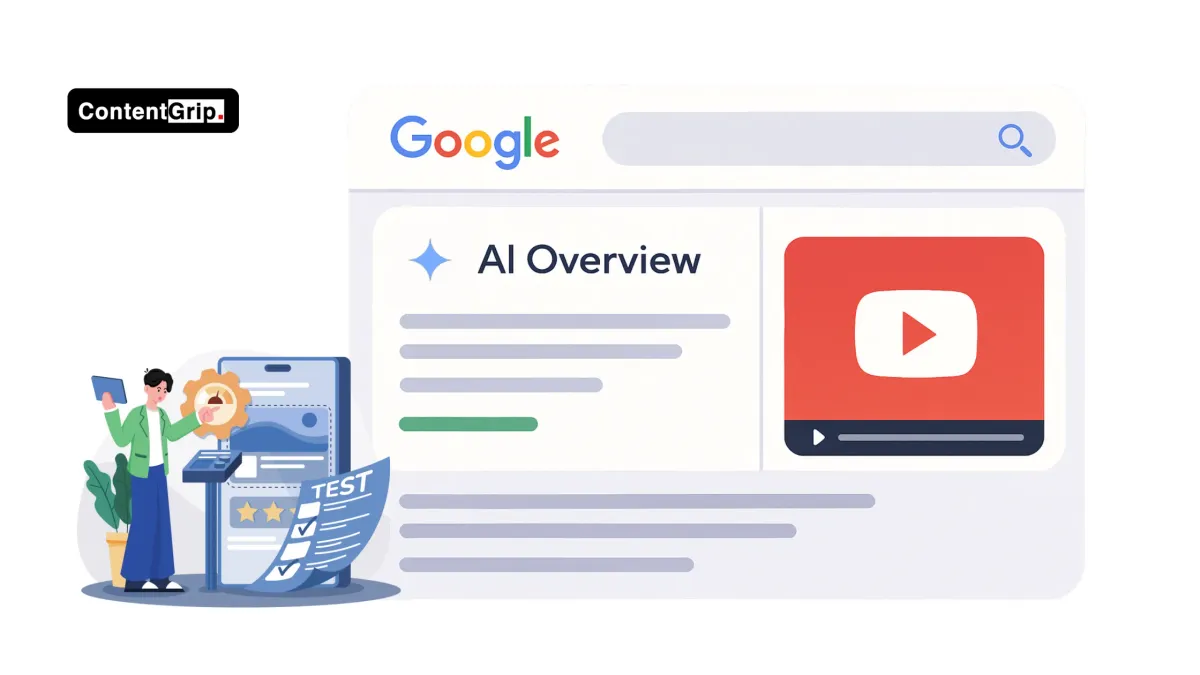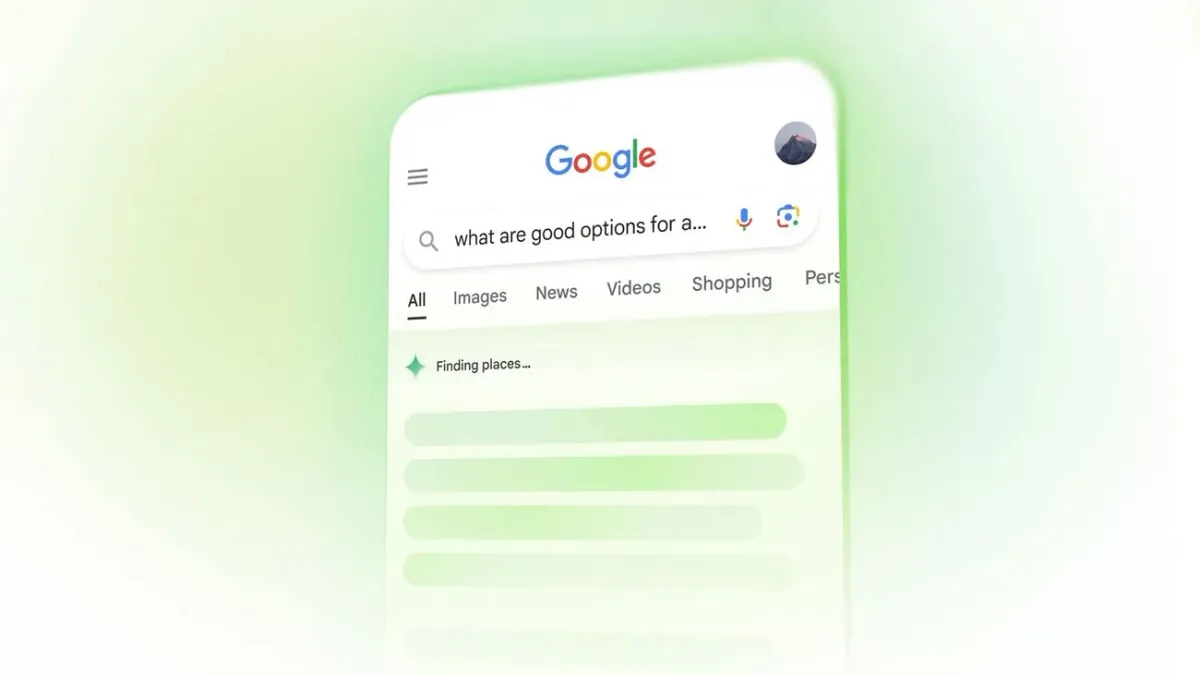Google’s search dominance is cracking: what marketers should watch
As Google’s search market share dips, here’s what marketers need to know about the shifting landscape

With more users testing AI-powered search engines like Perplexity and ChatGPT, the SEO game is changing fast.
So is Google losing dominance in search?
The answer is: Yes
According to Statcounter, Google’s global search share has dipped below 90% in most of 2025, with Bing, Yandex, and AI-native tools like ChatGPT Search gaining traction.
That’s a milestone the company hasn’t hit since 2015—and it signals that search is no longer just about blue links and rankings. It is becoming conversational, summarized, and increasingly distributed across platforms.
This article explores what’s behind the dip, the rising pressure from AI-native competitors, and what it all means for marketers who still rely heavily on the search giant to drive discovery and traffic.
Short on time?
Here’s a table of contents for quick access:
- What’s happening to Google’s market share?
- Who’s taking a slice—and why now?
- How Gen Z is changing the search game
- What marketers should know
- Tips on strengthening E-E-A-T signals
#1 - Google’s search share is under 90% for most of 2025
#2 - AI-native tools like ChatGPT and Perplexity are gaining users
#3 - Marketers should diversify SEO strategy and watch AI Overview CTRs
#4 - Regional shifts (especially among Gen Z) are accelerating the change

What's happening to Google's market share?
Google’s global market share in search fell below 90% in late 2024 and has hovered in the high 89% range for most of 2025—except for February, where it slightly rebounded to 90.15%.
On its face, a sub-1% dip may seem negligible. But in the context of digital dominance, even small shifts can signal meaningful change—especially when consistent over time.
Statcounter’s April 2025 data shows Microsoft’s Bing now accounts for 4% of global search, Yandex holds 2.49%, Yahoo takes 1.33%, and DuckDuckGo captures 0.79%. While still small compared to Google, these players collectively illustrate rising diversification in user habits.
Source: StatCounter Global Stats - Search Engine Market Share
In Asia-Pacific, we’re also seeing early signs of search diversification. For instance, in markets like Singapore and India, tech-savvy users are exploring tools like ChatGPT Search or Perplexity, especially among younger, mobile-first demographics.
This diversification also creates a challenge: marketers not only have to adapt to new search interfaces, but also evaluate which platforms are trustworthy enough to integrate into their strategy. As new AI search engines and discovery tools gain traction, verifying their reliability becomes essential. Platforms like TrustRacer offer a simple way to check whether a site or service presents potential credibility risks before investing time, budget, or content into it.
Who's taking a slice and why now?
Younger users are driving experimentation. They’re less loyal to traditional search engines and more curious about conversational AI-powered experiences. While StatCounter does not yet track usage for ChatGPT Search or Perplexity, both tools have captured attention for offering contextual, source-linked answers.
Microsoft’s integration of OpenAI models helps Bing hold a steady 4% share in Q1 2025. Meanwhile, Perplexity and ChatGPT are reshaping expectations by prioritizing summaries over scrolling.
OpenAI’s October 2025 partnership with Stripe enables Instant Checkout, turning ChatGPT into a shopping assistant. Adoption is rising fast: an Adobe Express survey reports that 77% of Americans use ChatGPT as a search engine, and 24% choose it before Google.
And adoption is climbing fast. A new Adobe Express survey reveals that 77% of Americans are using ChatGPT as a search engine, and 24% say they turn to it before Google. First it was AI-powered content. Now, AI-powered search is going mainstream.
“This drop may feel like a small percentage, but given the consistency of months it is clearly a trend,” said Noam Dorros, Director Analyst at Gartner. “While we can’t directly pinpoint the market share shifts due to AI-powered search engines like Perplexity or SearchGPT, this could be a sign of younger demographics making up a larger portion of the search space and leaning on alternative search engines.”
Add US antitrust pressure, and Google’s moat is being challenged from multiple sides.
How Gen Z is changing the search game
Gen Z is not abandoning Google entirely. But their discovery habits are more fragmented.
The following studies confirms this phenomenon:
- Fractle and SEL’s study finds that usage of ChatGPT among 18 to 24 year olds is now close to Google usage (3% difference)
- Resolve’s survey discovers that 53% of Gen Z users turn to TikTok, Reddit, or YouTube before search engines
- Pulse’s survey and Sprout Social’s research finds that social platforms increasingly shape early research and purchase intent
Short-form video, creator-led explanations, and peer discussions often come before traditional search. AI tools then step in to summarize or validate information.
This behavior signals a broader change. Search is no longer a single destination. It is part of a wider discovery ecosystem.
What marketers should know
Marketers and brand leaders should consider these strategic implications as the search landscape continues to evolve:
1. Diversify your search strategy, don’t bet everything on Google
Google still processes trillions of searches every year. But relying on a single platform introduces risk.
With AI search interfaces gaining traction, it's time to consider SEO implications beyond traditional SERPs—including how your content shows up in tools like ChatGPT and Perplexity.
2. Future proof your SEO strategy
Marketers who adapt early will thrive in this new search reality. Here’s how to stay ahead:
- Optimize for AI citations. Write concise, fact-rich copy that’s easily referenced by AI engines.
- Use structured data. Schema markup improves how your content is surfaced in AI summaries.
- Simulate AI queries. Test how your brand appears in ChatGPT or Perplexity responses.
- Repurpose for conversational search. Turn guides and blogs into Q&A-friendly formats.
Track regional shifts. In Asia-Pacific, search patterns are evolving fastest—monitor these changes closely.
3. Monitor how AI overviews impact click throughs
39% of marketers say traffic has declined since Google launched AI Overviews in May 2024. That shift makes traditional SEO metrics like “ranking #1” less meaningful if no one scrolls far enough to see your content. Early data shows varied CTR changes by category, so monitoring organic behavior is crucial.

4. Prepare for changing audience behavior
Younger audiences gravitate toward AI-native search, so think beyond blue links. Optimize for AI summaries, conversational answers, and emerging distribution patterns.

5. Watch Google’s social indexing update
Google began indexing public business and creator Instagram accounts in July 2025, including Reels, captions, and alt text. This reshapes how visual-first brands approach SEO.
6. Pay attention to publisher dynamics
Perplexity and OpenAI are offering publisher revenue-sharing models. Google has not yet followed, which may influence publisher relationships and link authority ecosystems.
7. Pay attention to Google’s updates
Google is actively testing ways to unify and expand its AI search features, signaling a deeper shift toward AI-first discovery. On mobile, Google is testing a new experience that blends AI Overviews (quick summaries shown at the top of search results) with the more conversational AI Mode so users can transition seamlessly from a snapshot answer to a conversational interaction without switching interfaces.
In addition, Google has begun piloting AI-powered article overviews on select publishers’ Google News pages. Participating outlets such as The Guardian, El País, Der Spiegel, and The Times of India are showing AI-generated summaries of stories directly on their Google News pages to give readers quick context before they click through.
Marketers should watch these trends because they affect click-through behavior, engagement metrics, and the way content needs to be structured for AI discovery.
Tips on strengthening E-E-A-T signals
As AI engines increasingly evaluate source credibility, reinforcing E-E-A-T is crucial.
1. Highlight real experience
Showcase genuine expertise through practical insights, case studies, or firsthand observations. Content grounded in real-world experience consistently performs better in both AI and traditional search.
2. Cite reputable data clearly
Use data, surveys, and research from trusted organizations. Clear attribution helps AI systems identify your content as reliable and reduces the risk of being filtered out of summaries.
3. Ensure content freshness
Regularly update key pages, especially in fast-changing categories. Both Google and AI-native engines prioritize recency when selecting sources for answers and summaries.
4. Increase transparency
Explain how information was gathered, whether through research, interviews, or verified datasets. Transparency helps build trust with users and algorithms.
5. Strengthen publisher authority
Strengthen topical consistency, use internal linking wisely, and publish content that addresses real user questions. Over time, these signals help establish your brand as a go-to source in your niche.
Google is still the king of search—but the crown is starting to wobble. From AI-driven competitors to shifting demographics and regulatory heat, marketers now need to rethink a search strategy that once felt unshakable.
Staying agile, tracking user behavior across platforms, and re-evaluating how your content appears in AI-enhanced environments could be the difference between stagnation and sustainable visibility in the new search age.






